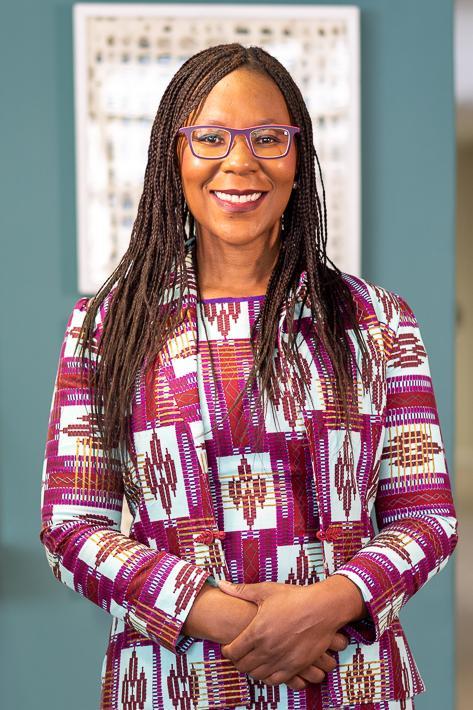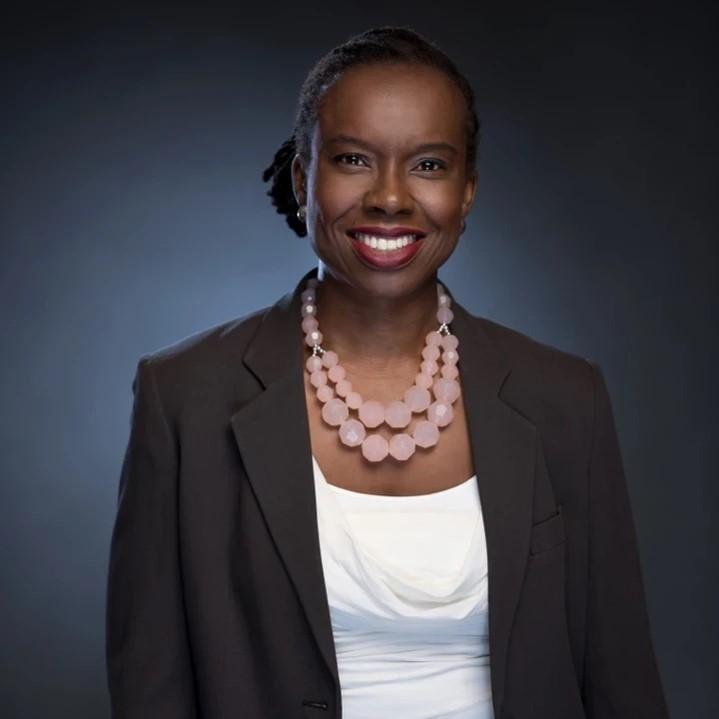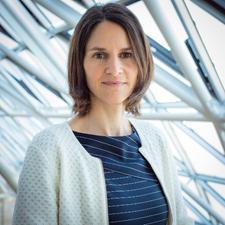An African gender-lens equity fund proves that traditional investors are leaving money on the table, because investing in women brings superior performance
Chika Russell left her home in Nigeria for the United Kingdom at the age of six. But those early years of family cooking and traditional recipes inspired her career, because she fell in love with the local street food made by Nigerian women — “dodo” fried plantain, roasted yam, and the small, more intense variety of peanuts grown in the country, called “epa.”
As an adult, Chika noticed that African food is hugely under-represented in the UK snack market. In 2014, after seven years working in finance, she created her own company. CHIKA’S sources unique ingredients from across Africa and works directly with communities in Nigeria to offer healthy, hand-made snacks to British consumers.
“I wanted to do something impactful for other people,” says Chika, “and have the most successful business possible.”
As a way to give back to the women who inspired her, Chika launched Snacks4Change, a partnership with World Vision, which will provide 38 000 girls access to education by 2025 and build schools for children across Africa in the next decade.
One of CHIKA’S investors is Alitheia IDF, a gender-lens African investment fund led by two female founding partners, Tokunboh Ishmael and Polo Leteka. The European Investment Bank signed a $24.6 million investment in the pioneering fund in November 2021, enabling Alitheia to reach its target size of $100 million. It’s the EU bank’s first investment in a private equity fund that focuses on small and medium-sized enterprises with a gender lens in Africa.
Championing dreams
Alitheia’s collaboration with Chika started in April 2020. “Tokunboh Ishmael was very direct,” says Chika. “She told me, ‘I champion your dreams, but you need to make returns too’. I appreciated her directness. We were both very efficient. We did not want to waste time, and that suited me wonderfully.”
The growth capital from Alitheia has allowed Chika to set up a manufacturing facility in Nigeria, which is expected to open in early 2022, employing 320 people, 70% of them female. The facility will produce snacks for the Nigerian and West African markets. All the products will be exported to neighbouring countries, creating jobs there, too. Alitheia also helped Chika accelerate the growth of CHIKA’s UK, by expanding its team and distribution networks.

Polo Leteka
“We were looking for female founders, but the business itself and the experience of the founder, irrespective of gender, was a huge pull for us,” said Tokunboh. “Putting the female angle aside, we look at four key things: management, opportunities, return potential and the exit alternatives.”
Adds Polo, “Chika’s impact story was really great, the market was evident, the size of the opportunity was evident. Chika is a great entrepreneur, very dynamic. She understands what she is doing. She is hungry.”
Driving gender diversity in Africa
Alitheia IDF invests in and grows small and medium-sized enterprises led by gender-diverse teams to achieve solid financial returns and tangible social impact in Africa. The fund invests in sectors that engage a significant percentage of women, as entrepreneurs, producers, distributors or consumers. These sectors include agribusiness, consumer goods, health, education, creative industries, and financial and business services. Located in Lagos and Johannesburg, Alitheia invests in six countries: Nigeria, South Africa, Ghana, Zambia, Zimbabwe and Lesotho.
In 2008, when Tokunboh and Polo started Alitheia IDF, which is a joint venture between Alitheia Capital in Nigeria and IDF Capital in South Africa, they were determined to back women-owned businesses, because they knew that there were many women on the continent whose businesses could grow with the right funding.
“One of the first drivers was when I realised that much of the capital that I was deploying was going to male founders and male-run businesses in male-dominated industries,” Tokunboh says. “I sat in rooms where I was the only woman investor, surrounded by male-founded investee companies, and I thought, ‘That cannot be because female founders do not exist’. So I dug and found that the numbers played to the fact that diversity does drive superior performance, better corporate governance, greater innovation.”
About 40% of businesses in sub-Saharan Africa are women-owned, but less than 10% of these businesses are able to raise funding from traditional financiers. “We often say that traditional investors are leaving money on the table, because they are much more comfortable backing people that look like them, work like them, talk like them, and hang out in the same places,” adds Polo.

Tokunboh Ishmael
A 2X Flagship fund
Alitheia has committed to investing with a gender lens using the 2X criteria and is a 2X Flagship Fund. 2X Flagship funds are part of the 2X Challenge, a multilateral initiative launched by the development finance institutions of the G7 countries, with the aim of mobilizing $15 billion by the end of 2022 to support projects that empower women and enhance their economic participation.
The European Investment Bank was the first multilateral development bank to adopt and use the 2X criteria. It joined the 2X Challenge as a member in June 2021. Two of its private equity team members, Déborah Vouche and Matthieu Ducorroy, worked on the EU bank’s investment in Alitheia.
“Tokunboh and Polo possess a true private equity track record and have already been successful in previous initiatives,” says Matthieu. “They have the willingness to make things happen and we saw we could help them structure the fund and apply the highest standards in terms of governance and reporting.”
Déborah adds that the European Investment Bank was attracted by the opportunity to invest in a female-only team in a private equity world dominated by men. “This is a true by women, for women fund,” she says. “They were pioneers in this segment and really the first team to propose a gender-focused fund in sub-Saharan Africa.”
The investment in Alitheia IDF also contributes to the SheInvest initiative, under which the European Investment Bank aims to mobilise €2 billion of gender-responsive investment across the continent.
Mentalities are slowly changing
Chika, Polo and Tokunboh all faced challenges as women fund managers and entrepreneurs.
“Just by being a woman, you are already a few steps behind,” says Chika, “for everything from gaining distribution to fund raising. I went through a fund raising process just two years ago, and some investors asked me how I would manage to balance my children and my work. They would ask this question, even if they were fathers.”
As advice to budding women entrepreneurs, Tokunboh says: “Raise your aspirations. It’s not easy to raise funding. Hopefully you will be knocking at our door. If you go knocking elsewhere don’t be put off by a ‘no’. Leverage a ‘no’ to think about what you need to change within your business. Be open and flexible to that. If you recognise that is it just unconscious bias, you really need to come to Alitheia IDF.”
But over the past five years, Polo and Tokunboh have witnessed a shift in mentality regarding diversity. Investors have either embraced diversity, become educated about it, or are curious. “I suspect in the next year or two,” says Polo, “every investor will ask, ‘What is your gender-lens Investing strategy?’”
